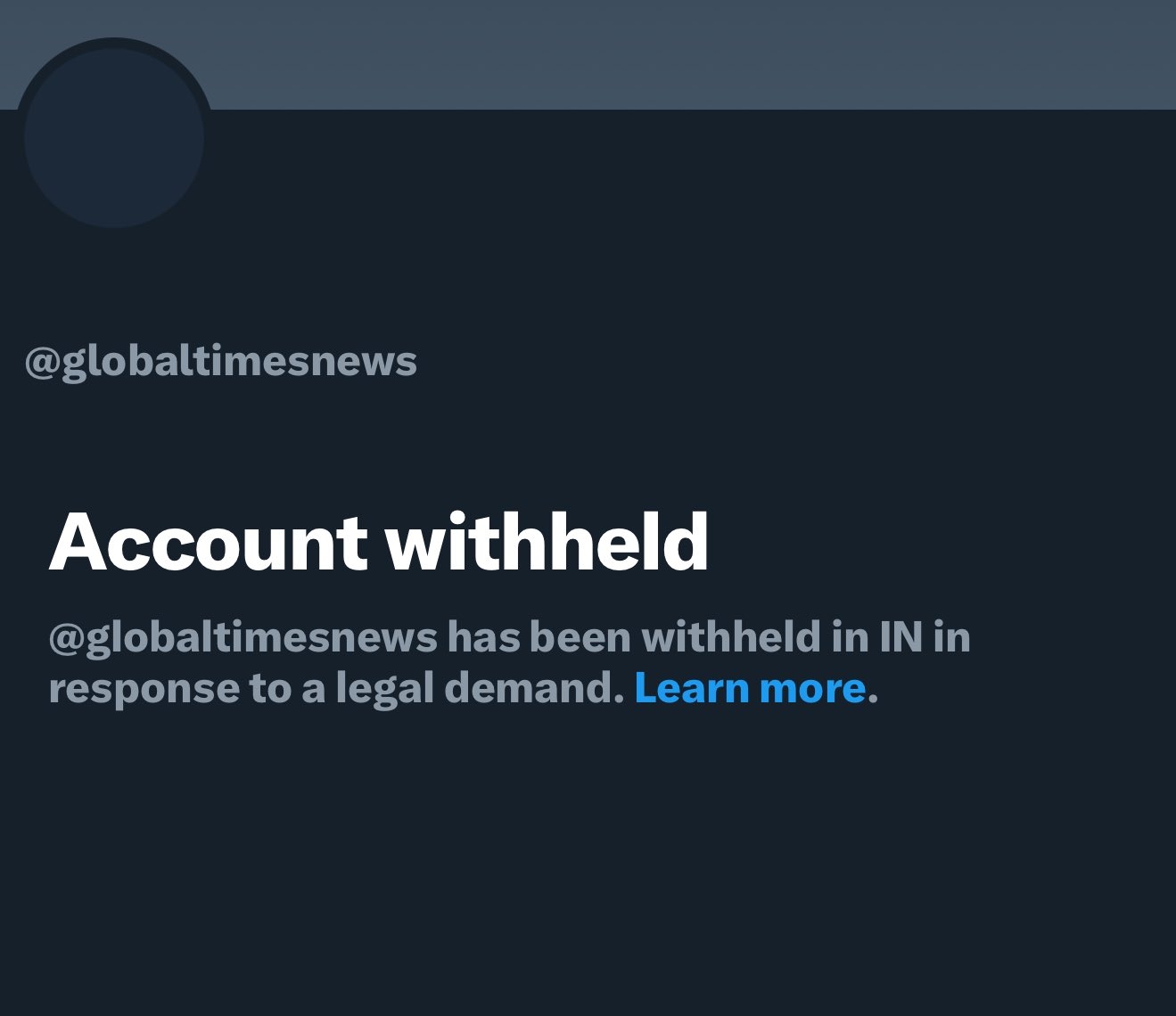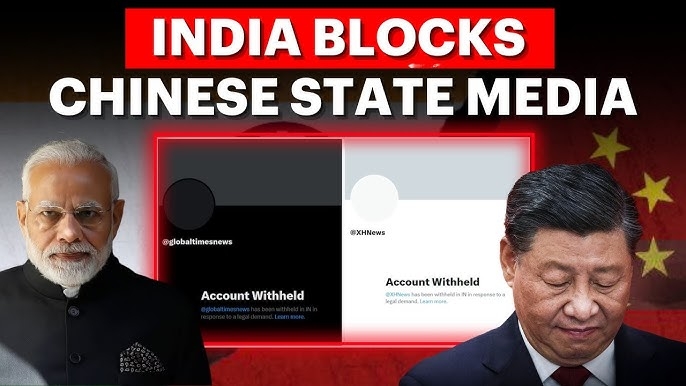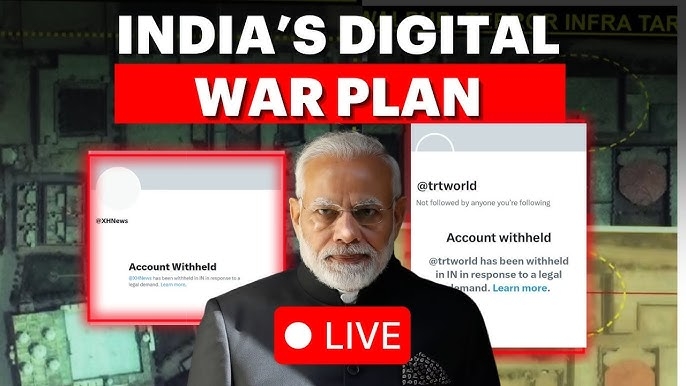India Acts Against Foreign Media Propaganda
The move to block their handles is aligned with Section 69A of the Information Technology Act, which allows the government to block public access to information in the interest of sovereignty and integrity of India, defense of the country, and public order.
-(1)_202505141500277447_H@@IGHT_720_W@@IDTH_1080.jpg)
In a bold step reflecting its zero-tolerance stance against foreign misinformation campaigns, the Government of India has blocked the social media handles of Turkish state broadcaster TRT World, and Chinese state-affiliated media outlets Xinhua News Agency and Global Times on platform X (formerly Twitter). This action was taken in the wake of these outlets allegedly promoting anti-India propaganda, particularly during India’s recent military operation named Operation Sindoor.
The Indian Ministry of Information and Broadcasting, in a strongly worded notice, stated that these media houses had indulged in “dissemination of unverified, malicious, and misleading content” designed to destabilize public opinion, sow discord, and bolster hostile narratives in the region.
Sources from within the government revealed that during Operation Sindoor, a high-profile military response to cross-border infiltration, TRT World and Chinese outlets circulated content framing India as the aggressor, blatantly misreporting facts and painting a picture sympathetic to Pakistan.
Global Times, often known for its hawkish tone and propagandist Chinese viewpoint, went a step further. The outlet accused India of violating international norms and alleged a secret coalition with the West to “encircle China and its allies,” a narrative that drew widespread criticism for lacking credibility and evidence. This is not the first time these outlets have been under scrutiny.
TRT World, for years, has been accused of acting as a megaphone for Turkey’s state ideology, particularly under the influence of President Erdogan’s Pan-Islamic outreach. It has often championed Pakistan’s stand on Kashmir, including airing documentaries that describe the abrogation of Article 370 as an “occupation.”
Similarly, Xinhua News Agency, the official press arm of the Chinese Communist Party, has often engaged in subtle yet consistent anti-India messaging—especially during India-China border tensions in Doklam (2017) and Galwan (2020). Reports published during those periods referred to India as “provocative” and “reckless,” while ignoring Chinese military transgressions.

Global Times has been even more blatant, using terms like “Indian aggression” and predicting “India’s fall into chaos” in the wake of policy reforms or military developments. Its opinion sections routinely carry anonymous pieces questioning India’s democratic institutions, religious freedom, and foreign policy, often without any basis in fact.
According to cybersecurity analysts, such narratives are not merely journalistic biases but part of a calculated hybrid warfare strategy by adversarial states. A senior official in the Ministry of Home Affairs described it as an “information war” that must be countered with “legal, technological, and diplomatic tools.”

The move to block their handles is aligned with Section 69A of the Information Technology Act, which allows the government to block public access to information in the interest of sovereignty and integrity of India, defense of the country, and public order.
Moreover, India’s action sends a global signal: freedom of speech cannot be abused by state-backed media to undermine other nations.
Public opinion on the ban is largely supportive. Prominent defense analysts and ex-diplomats have lauded the move, calling it overdue.
The blocking of TRT World, Xinhua, and Global Times is a watershed moment in India’s digital sovereignty and media accountability. As geopolitical tensions escalate and propaganda becomes more sophisticated, India’s message is clear: malicious narratives will not be tolerated, and national security will always come first.


